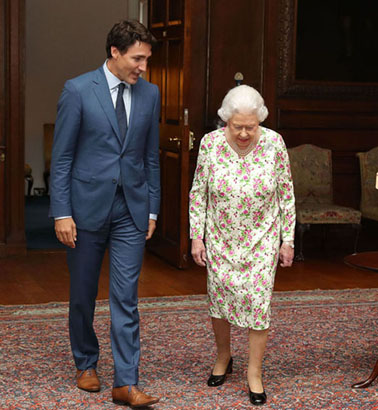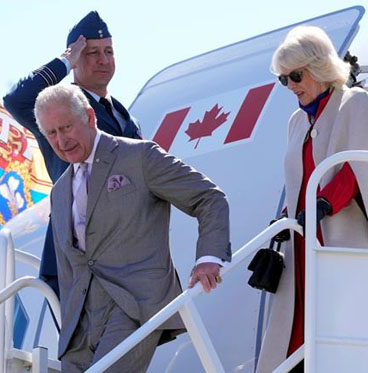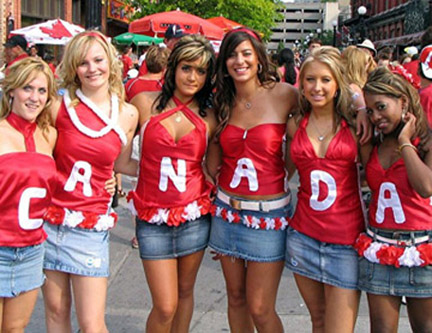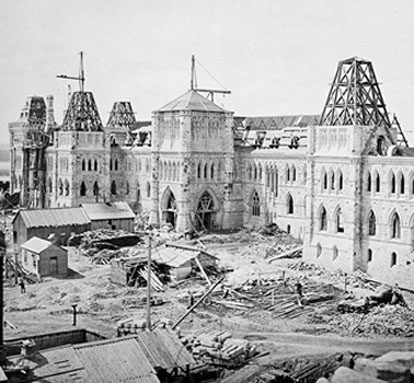Victoria Day 2024 in Canada : Queen Victoria is NOT “the mother of confederation” — and never was
May 24th, 2024 | By Randall White | Category: In BriefRANDALL WHITE, FERNWOOD PARK, TORONTO . FRIDAY, MAY 24, 2024. This past Monday was “Canada’s oldest public holiday.”
According to Wikipedia it is “observed on the last Monday preceding May 25 to honour Queen Victoria, who is known as the ‘Mother of Confederation’. The holiday has existed in Canada since at least 1845, originally on Victoria’s natural birthday, May 24.”
This is one of those (not all that many) cases where it is unwise to lean too hard on Wikipedia. In fact a 1960 article by the late University of Toronto historian J.M.S. Careless — “George Brown and the Mother of Confederation, 1864” — only somewhat whimsically urged that Anne Brown, wife of the Globe founder and Liberal Reform political leader George Brown, deserved the title “Mother of Confederation.”
Some one hundred years earlier, however, the title does not seem to have been applied to anyone at all during the 1860s founding moments of the Canadian political system we still live under today — and certainly not to the Queen Victoria who lived across the sea in England.
Ottawa began as capital of the old United Province of Canada
An unattributed article in the online Canadian Encyclopedia, first published January 15, 2016 and last edited January 25, 2023, does include Queen Victoria as the first of six only recently invented “mothers of confederation” — none of whom (again) was apparently so recognized by anyone when the confederation first took shape in the 1860s.
This same unattributed Canadian Encyclopedia article also claims that “Victoria selected Ottawa as capital for the Dominion in 1867 as it was sheltered from potential American invasions and stood on the border between English and French Canada).”
What actually happened historically is explained in such long-lived standard works as J.M.S. Careless’s The Union of the Canadas :The Growth of Canadian Institutions 1841–1857, and W,L. Morton’s The Critical Years : The Union of British North America 1857–1873.
In 1857 the elected politicians of the United Province of Canada (broadly today’s Ontario and Quebec), whose capital kept rotating between Toronto and Quebec City, had sent the question of a permanent capital for the province to the office of the Queen in London, England, with Ottawa as a possibility suggested by United Province Governor General Edmund Head.
By the end of 1857 Queen Victoria’s government had confirmed Ottawa as the new capital of the United Province of Canada across the ocean.
Ten years later the new 1867 Canadian confederation, which brought a new Ontario and Quebec together with at least two British North American Atlantic provinces (Nova Scotia and New Brunswick), inherited Ottawa from the old United Province as the capital of the new Dominion of Canada. (Along with elegant new Parliament buildings which the United Province government had finally moved into in 1866.)
“Time for a change!”

All this was brought to my own mind by two recent postings on X (formerly Twitter).
The first, on Monday, May 20 (Victoria Day), was from the Canadian House of Commons — fresh from its recent majority rejection of a private member’s bill that would make the Member of Parliament oath to the British monarch in the Constitution Act, 1867 optional in the 21st century. (Though 113 MP s, an even third of the total, happily did vote for the bill.)
This May 20 House of Commons posting declared : “Happy Victoria Day! This is Canada’s oldest public holiday. We celebrate the Sovereign’s birthday and fly the Royal Union Flag (the “Union Jack”) … For many Canadians, Victoria Day serves as the first indication that summer is approaching!”
The second X posting appeared on May 21, and it was from Polling Canada. It noted :“It’s Ontario Flag Day … Do you like the flag or do you think it’s time to change it? “
The current Ontario flag, for those who may have forgotten, is the old British red ensign with a provincial crest. (Manitoba’s flag is the same, except for the crest!)
I am told that counterweights.ca replied to this question online with a simple “Time for a change”!
‘2 in 3 Canadians would vote to eliminate the monarchy in Canada’

What I do not personally understand, even at my increasingly advanced age, is just why various political elites and/or political classes in Canada (outside Quebec at any rate) remain so mysteriously attached to the offshore British monarchy and the now quite obsolete history of the British empire in North America — some 157 years after the 1867 Canadian confederation started its complex (and of course at first semi-colonial) existence..
I’d just note here that just last month the illustrious counterweights editors on this site pointed out that “an Abacus Data poll last May, just before Charles III’s coronation, found that ‘2 in 3 Canadians would vote to eliminate the monarchy in Canada.’”
It remains true enough that, even in the 2020s, exact responses to questions about the offshore monarchy which has played no practical role at all in the Canadian confederation, at least since the end of the Second World War in 1945 — two years before the first Canadian Citizenship Act took effect in 1947 — can vary with the exact questions asked.
(Before 1947 residents of Canada were legally just “British subjects” — as they had been since the Treaty of Paris in 1763. Now in 2024 we are all just Canadian citizens, or for the most part residents waiting to become Canadian citizens. And the Canadian people who vote in elections are the real ultimate sovereign authority in our government and politics today.)
An obsolete colonial institution, supported by a dwindling minority of the population

I think it is a fair enough reading of relevant opinion polling for some time now that, whatever else, no more than a quarter to at most a third of Canadian citizens actually support any vague and even merely symbolic role for the monarchy in Canada today.
Even in the real world this raises a deep political question that Canadian politicians will soon enough have to address constructively — as the minority of 113 federal MP s who voted to make their old-school oath to the British monarch optional have just recently begun to acknowledge.
How much longer, that is to say, can we in Canada officially, legally, and constitutionally claim to be basing our “free and democratic society” (Constitution Act, 1982) on an obsolete and still essentially colonial institution, supported by a dwindling minority of the population?
Moreover, in fact this is not at all as difficult a question to answer as the Canadian political elites and/or political classes who so mysteriously oppose any kind of Canadian republic claim— as such other former British dominions as India and Ireland have shown in the 20th century.
“The 24th of May/ Is the Queen’s Birthday …”
As, eg, modern India or Germany illustrate, the monarchy can also be replaced, as it were, by an institution over which the provincial legislatures who must all agree to any such change in Canada have the kind of influence that will attract them to change!
Meanwhile, it is strictly a species of fake-news monarchist ideology, not real-world Canadian history, to call Queen Victoria the mother of confederation. (As Professor Careless demonstrated back in 1960 the only serious candidate for this title, on grounds of strict historicity, is George Brown’s wife Anne. And I can think of at least one objection to this as well!)

Meanwhile again, Victoria Day in Canada made somewhat more historical sense than it does now when it was still celebrated on the 24th of May — which was Queen Victoria’s actual birthday. Today we have sacrificed authenticity of this sort to the more practical need of a Monday long weekend, which “serves as the first indication that summer is approaching.”
Similarly, today Victoria Day has just become Canada’s version of Memorial Day in the adjacent USA (one week earlier than Memorial Day, to underline that Canada is a different country, as we are of course). Personally it nowadays reminds me most of a piece of doggerel I (more or less) learned from my alas late mother, who grew up in Toronto in the 1920s and 1930s : “The 24th of May/ Is the Queen’s Birthday/And if they don’t give us a holiday/We’ll all quit school!”




Randall…it is always great to read your articles…full of informative information with a Canadian history lesson as well.
I just wish our politicians would read your books and articles. Perhaps they would get a sense of how the majority of us Canadians feel about he need to abolish the archaic monarchy and establish a republican form of government whereby I have the right to vote for who our head of state ought to be.
Thanks a heap for all your efforts to bring about positive change in how our government should be structured as a citizen.